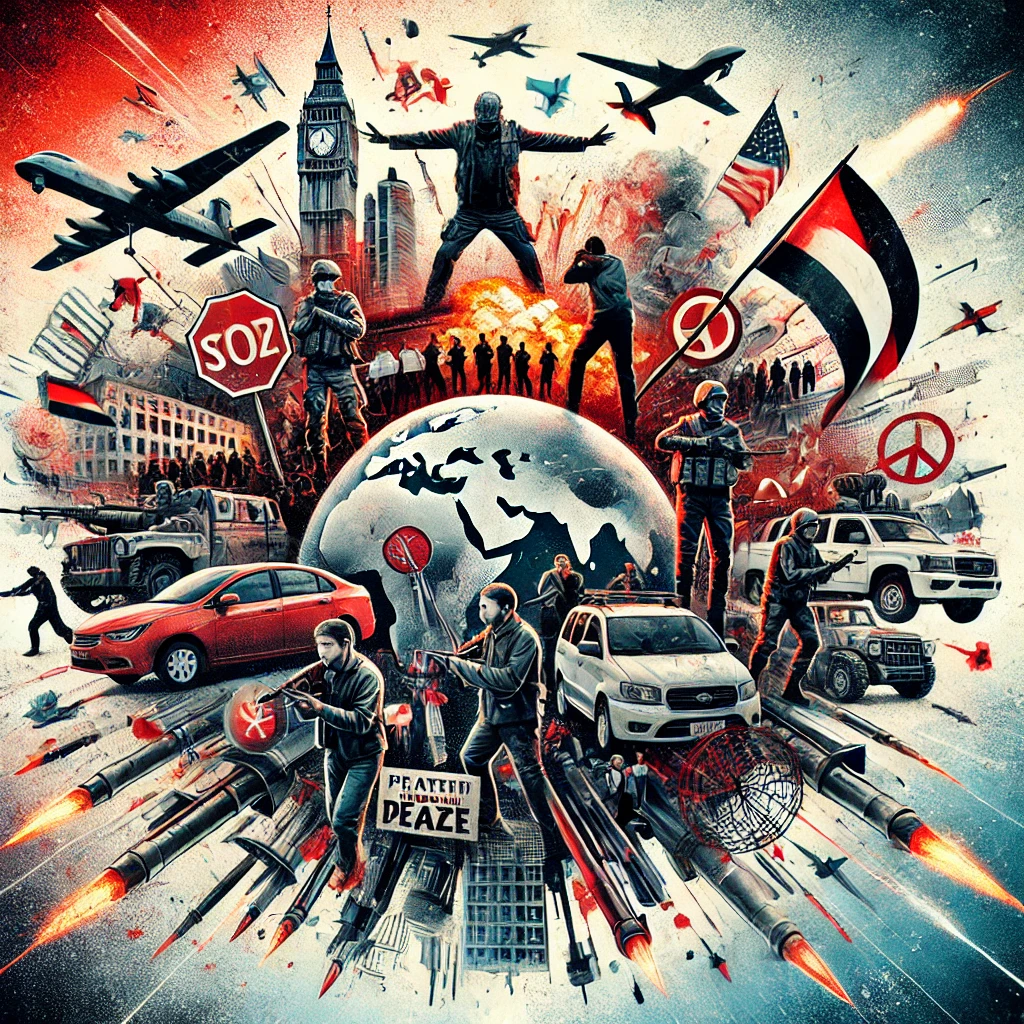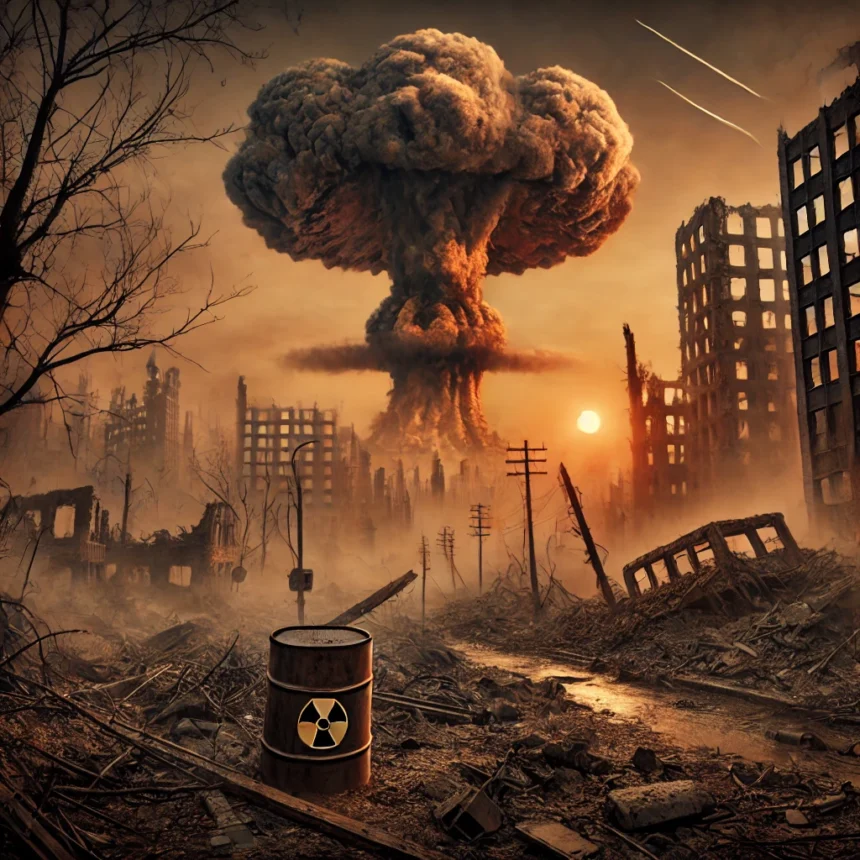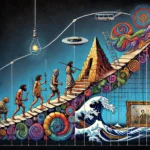The situation on GAIA seems more unstable than ever lately. Across the third planet of the Solar System, numerous wars and geopolitical tensions are escalating, creating a scenario that more and more Gaians see as a prelude to a third world war. But is this an exaggerated conclusion, or a necessary warning?
The Russian-Ukrainian conflict bears similarities to what happened in the Spanish Civil War, in terms of a testing ground for new military technology and the testing of international alliances
The main hotspots of conflict
- Ukraine: The European front
The war between Russia and Ukraine shows no signs of slowing down. With recent Russian attacks on energy infrastructure and the delivery of advanced weaponry to Kiev, the conflict has become a testing ground for modern warfare technologies and international alliances reminiscent of the Spanish Civil War in the years leading up to World War II.
Tensions between NATO and Russia, two nuclear powers, are fuelling fears of a direct confrontation that could have global consequences.
- Middle East: Old Wounds, New Battles
The Israeli-Palestinian fighting, now spilling over into Lebanon with the involvement of Hezbollah, adds another layer of complexity to a historically troubled region. The recent violation of a ceasefire illustrates how peace agreements are increasingly fragile.
In addition, Iran and Saudi Arabia continue their rivalry for regional hegemony, with global implications due to their energy and religious ties.
- Asia-Pacific: The Latent Threat in Taiwan
Tension between China and the US over Taiwan continues to grow. Chinese military exercises near the island and US support for its defence are perceived as mutual provocations, which could trigger a conflict of catastrophic proportions in a region that is key to the global economy.
- Africa: Forgotten conflicts
In Africa, civil wars and conflicts over natural resources continue to devastate countries such as Sudan and the Democratic Republic of Congo. Although these crises rarely make global headlines, their humanitarian and economic implications should not be ignored.

The rise of the far-right: a breeding ground for instability
As conflicts escalate, the resurgence of far-right movements around the world is exacerbating the situation. These groups, with nationalist and authoritarian discourses, are gaining ground in key countries, promoting divisive policies that undermine international cooperation.
- Europe:
In Italy, the far-right-led government is showing authoritarian tendencies reminiscent of dark times. Meanwhile, in France and Germany, ultra-conservative parties are gaining support, fuelled by the migrant crisis and economic discontent.
- America:
In the United States, the resurgence of Trumpism has further polarised society. To the south, countries such as Brazil have experienced a rise and fall of right-wing populist leaders, leaving their societies fragmented.
- Asia:
India, under the leadership of Narendra Modi, is seeing a rise in Hindu nationalism, with policies that marginalise religious minorities and exacerbations of internal tensions.
- Global:
The nationalist and protectionist rhetoric of these movements threatens the values of international cooperation and multilateralism needed to address global challenges such as climate change and food security.

So, is a third world war inevitable?
There is no doubt that Gaians seem to have been trapped for too long in a self-destructive cycle: the rise of the far right encourages polarisation and makes it difficult to resolve conflicts, while war tensions are escalating in an increasingly interconnected but also fragmented world.
However, there are reasons for hope:
Citizen movements: All over the world, people are organising to demand peace, justice and concrete action against global crises.
Diplomacy:Although fragile, diplomacy remains a key tool for avoiding major conflict, as evidenced by the resumption of talks between some warring nations.
Technological innovation: Advances in science and technology could help to solve fundamental problems, provided they are used responsibly.
No one is interested in such a war: With today’s level of technology, the Gaians are well aware that a global war that gets out of hand would doom them to destruction.
Should we do something about it?
Galactic non-intervention agreements are quite blunt in this regard. We cannot intervene unless global catastrophe is objective and imminent beyond any doubt, and inevitable unless external action is taken, as it has been in the past. It is true that the alert level is high at the moment, but we are not there yet.
The galactic treaties are clear. We cannot yet intervene.
What will we do if it comes to it?
This is a question worth considering. Our interventions in the past may have gone more or less unnoticed because Gaian technological development was still in its infancy. But now their advances in detection and security are sufficiently complex to pose a challenge. Nevertheless, this humble newsletter is confident that our experts have already come up with satisfactory solutions. After all, most of the Gaian technology comes from our own gene pool. If anyone can counteract it, we can.

Conclusion
Is Gaia on the brink of World War III? The answer depends on the choices its inhabitants make in the coming years. The planet has the resources and the capacity to avoid global conflict, but this will require a concerted effort and a commitment to overcome political, social and cultural divisions. As a last resort, we will have to intervene, but we hope this will not be necessary. As we already know, the Gaians are better than they think they are. Let’s hope so.





